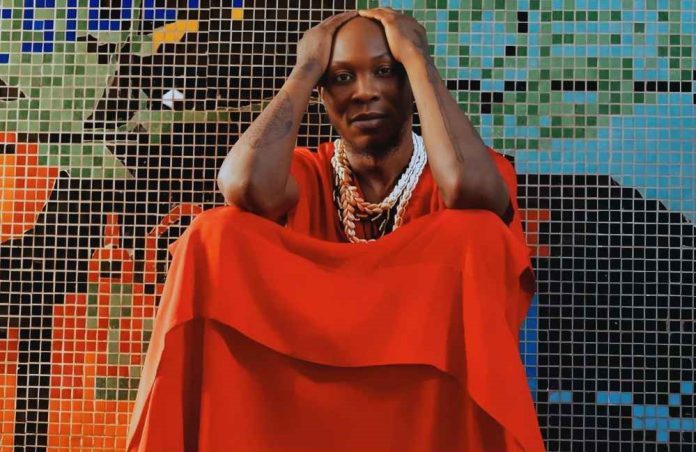
Seun Kuti, the youngest son of Afrobeat pioneer Fela Kuti, continues to torch his father’s revolutionary music with the release of his latest album, Heavier Yet Lies the Crownless Head. Leading Egypt 80, the band once helmed by his father, Seun Kuti blends modern Afrobeat with powerful messages that resonate deeply with today’s social and political climates. This album highlights the undeniable connection between Fela’s influence and the modern Afrobeat movement, showcasing Seun Kuti’s evolution as an artist.
Continuing the Afrobeat Legacy
Fela Kuti, the architect of Afrobeat, revolutionized music by fusing traditional African rhythms with jazz, funk, and highlife, creating a genre that was as much about resistance as it was about rhythm. Seun Kuti has spent his career upholding this legacy, ensuring that the essence of Afrobeat remains alive, while also adapting it for contemporary audiences. With Heavier Yet Lies the Crownless Head, Seun channels the revolutionary spirit of his father, crafting songs that not only move the body but also challenge the mind.
From the intricate polyrhythms to the bold brass sections, the album stays true to the core elements that define Afrobeat. Yet, Seun brings a modern flair, weaving in elements of hip-hop, electronic music, and global influences that reflect today’s musical landscape. The result is a sound that honors the past but remains relevant to a new generation of listeners.
Fela Kuti’s Influence on Modern Afrobeat
There’s no escaping the shadow of Fela’s immense influence on Seun Kuti’s work; Heavier Yet Lies the Crownless Head embraces that. Seun grew up immersed in the rhythms and activism of his father, and this upbringing is apparent in both the sound and message of his music. Fela’s spirit lives on in the defiant tone and politically charged lyrics, as Seun addresses themes of corruption, social justice, and African unity—key pillars of the Afrobeat tradition.
Tracks like “Crownless Head” echo the anti-establishment sentiments that Fela championed, while the pulsating beats and layered instrumentation take listeners back to the heyday of Fela’s reign. Seun, however, doesn’t merely replicate his father’s sound—he pushes the genre forward by exploring new directions in rhythm and production, making Afrobeat a global movement that adapts to the times.
The Modern Afrobeat Movement and Seun’s Role
Afrobeat has seen a resurgence in recent years, with artists like Burna Boy and Wizkid bringing genre elements to international stages. Seun Kuti’s place in this movement is unique because he represents a direct link to the genre’s origins, while simultaneously acting as a bridge to its future. Heavier Yet Lies the Crownless Head doesn’t shy away from blending Afrobeat with modern genres, showcasing how adaptable the sound is, and how it continues to evolve under Seun’s leadership.
The album also cements Seun’s role as a cultural and political voice in the global music scene. Much like his father, he uses music as a vehicle for activism. Whether addressing the fight for African self-determination or criticizing global inequities, Seun’s music speaks to the urgency of today’s socio-political landscape. This makes Heavier Yet Lies the Crownless Head a musical triumph and a bold statement on the state of the world.
A Bold Statement for the Future of Afrobeat
With Heavier Yet Lies the Crownless Head, Seun Kuti, and Egypt 80 continue to build upon the foundation laid by Fela. However, they do so with a forward-thinking approach that acknowledges the evolution of both music and the world at large. The album is a testament to the enduring power of Afrobeat and its relevance in modern music and activism.
Seun Kuti’s ability to maintain the integrity of the genre while introducing fresh ideas ensures that Afrobeat remains a dynamic and influential force. The album proves that Seun Kuti is not just preserving a legacy but also shaping the future of Afrobeat. As the son of one of the most influential musicians of the 20th century, Seun is stepping out from his father’s shadow and carving his path, making Afrobeat as vital now as it was during Fela’s reign.
Read more about the legacies of different artists on Music Industry Weekly.